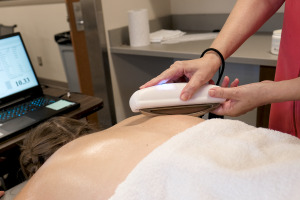
Q&A with Kristin Sherman: Life sciences veteran is fighting for women’s health
Kristin Sherman leads startup Kovina Therapeutics, which is still in the early stages of developing ways to stop human papillomavirus infections before cancer develops and to treat HPV cancers after detection.


















